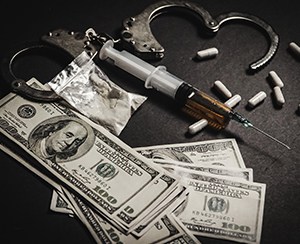 Law enforcement can charge you with DWI, DUI, Driving While Ability Impaired Drugs, or Driving Under the Influence of Drugs, in any situation wherein all you’ve taken is your prescription medication. In fact, these arrests are one of the fastest growing areas of driving offenses.
Law enforcement can charge you with DWI, DUI, Driving While Ability Impaired Drugs, or Driving Under the Influence of Drugs, in any situation wherein all you’ve taken is your prescription medication. In fact, these arrests are one of the fastest growing areas of driving offenses.
Any arrest for any of these offenses do not need to be evoked by the use or presence of illicit or illegal drugs. These situations can and do arise from the use of prescription drugs that are legally prescribed by your physician or another medical professional.
Should you ever be on prescription medication during a police traffic stop, it is advisable to refrain from mentioning it and say as little as possible.
At a traffic stop, you are typically required to produce your driver’s license, registration, and insurance. However, you’re not required to answer any questions asked by law enforcement. The police will, very commonly, innocuously ask where you are coming from, but you are not obliged to answer that question.
What many don’t realize is that, in some instances, particularly if you’re under the influence of prescription medication, or more commonly if you’ve had a drink or so, any answer to any question can lead to becoming a piece of evidence against you.
As understandable as it is to want to cooperate with police, answering any questions or giving information about your medication could lead you to a more complicated situation, and result in your arrest.
Will I Go To Jail If I’m Arrested A Second Time For Driving While Intoxicated Or Driving Under The Influence?
Whether or not you go to jail for a second DWI or DUI offense depends on so many aspects and considerations that surround the individual facts and circumstances of your case.
If this is your second offense and under the circumstance in which a person is seriously injured or killed in connection with your driving offense, there is a significantly increased chance of incarceration. However, there are many other factors to consider such as, which county the arrest occurred in, which district attorney’s office is prosecuting the case, which judge will preside over the case, what area of law your attorney specialized in, and more.
Additionally, if there is a child under the age of 16 in the car at the time of your arrest, if this second offense is a felony, the details of your criminal history and prior drug or alcohol use can significantly impact the prosecutor or the judge’s position when deciding a sentence.
So there are so many considerations that affect whether or not you will go to jail if you are arrested for a second time for a DWI or other “Driving While . . .” charge.
Do I Have To Proactively Inform The State Office Of Professions Or State Licensing Board If I’m Arrested For Driving While Intoxicated Or Driving Under The Influence? Can Your Firm Help Me?
In New York State, if you are a physician, nurse or other licensed professional, you may not be required to proactively inform the state Office of Professions or state licensing board if you are arrested for DUI or DWI. Whatever your situation, Inniss Firm PLLC is here to assist you. Our firm focuses on DWI defense and what we refer to as “Driving While . . .” defense, as a specialty. In fact, these “Driving While . . . “ cases make up 97% of all the matters we handle.
You should know that if you are arrested for DWI, driving while ability impaired drugs, or any other “Driving While . . .” offenses and you are fingerprinted as part of the arrest process, the NYS Office of Professions may be notified of that arrest, independently of anything that you do. You should also know that, if you’re working in a capacity where your license is being utilized, your employer may also be notified of the arrest.
It is also important to know that you may have an obligation upon your next license renewal to disclose the circumstances and outcome of your “Driving While . . .” matter, depending on whether or not there has been a criminal conviction.
Often, if your original DWI charge is reduced from a misdemeanor to a traffic infraction, there is no obligation to make a report or notification. The particular facts and circumstances of each case and the outcome of those cases is what dictates this obligation. Contact the Innis Firm, PLLC so that you can be guided and counseled in which way to pursue matters insofar as your state professional license is concerned.
For more information on DUI Law In New York, an initial consultation is your next best step. Get the information and legal answers you are seeking by calling (845) 533-0265 today.

Call For Your Complimentary Consultation
(845) 533-0265